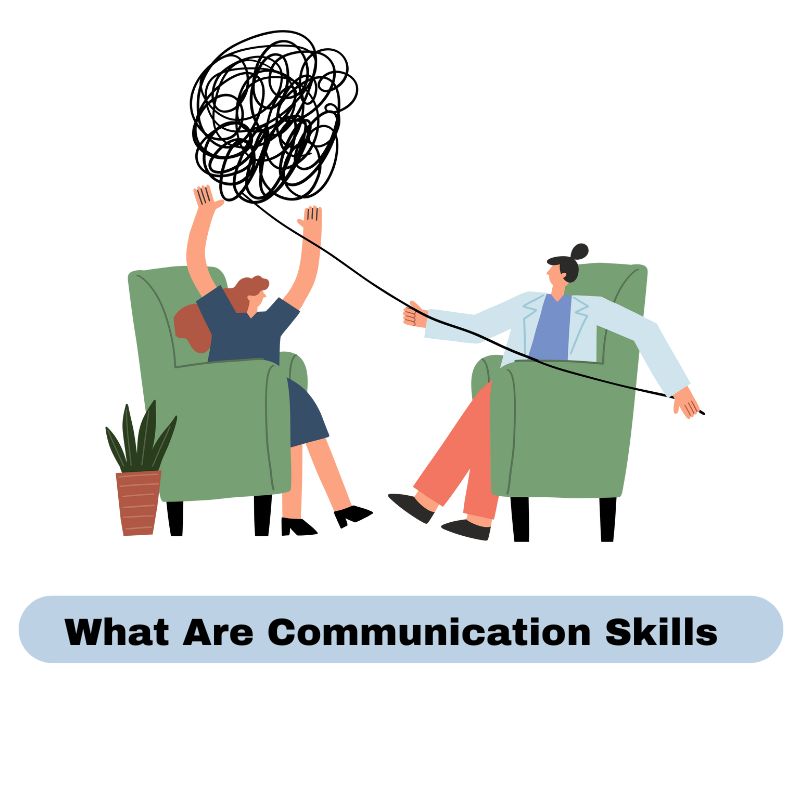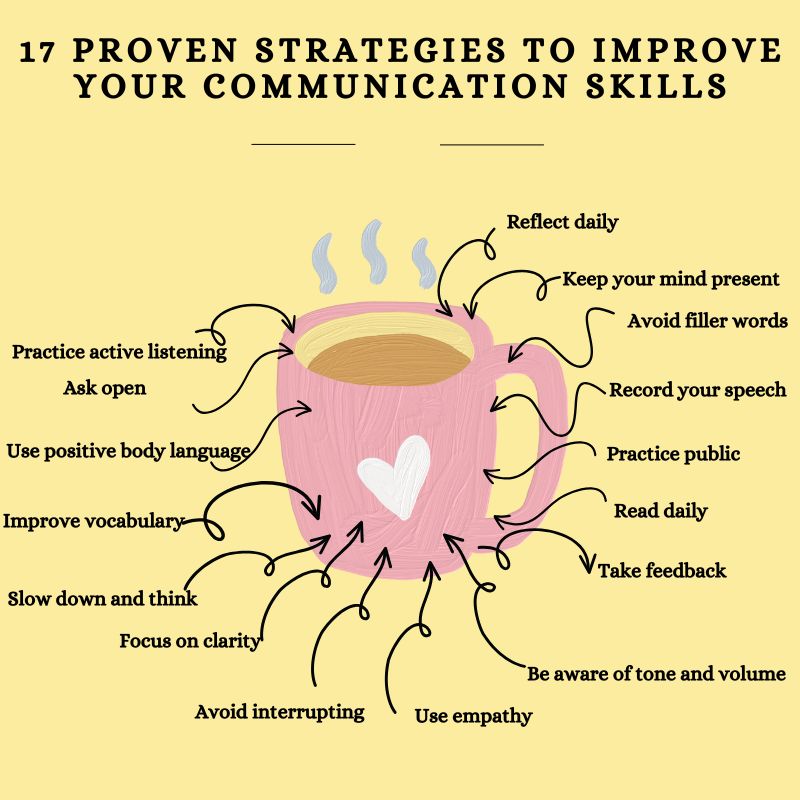Personal growth begins with the way we connect, express, and listen. Communication isn’t just about talking — it’s about understanding yourself and others more deeply. When you improve how you communicate, you enhance confidence, empathy, and emotional intelligence — all essential pillars of personal development. In today’s fast-paced world, mastering communication skills is one of the smartest investments you can make in your personal and professional growth.
What Are Communication Skills? The 4 Core Types Explained

To grow personally and professionally, it’s important to understand the four main types of communication:
- Verbal Communication – The words you speak and how you say them. Tone, clarity, and emotion play vital roles in influencing others.
- Non-Verbal Communication – Includes body language, facial expressions, gestures, and posture. Often, what you don’t say speaks louder than words. Learn more about mindfulness practices to improve emotional control.
- Written Communication – Emails, text messages, reports, or social posts that reflect your thoughts clearly and professionally.
- Visual Communication – Using visuals like charts, slides, or images to share information effectively.
Each type contributes uniquely to your personal growth. Together, they help you express ideas with confidence and understand others with empathy.
Why Are Communication Skills Important for Personal Growth?
Strong communication skills do more than improve conversations — they build character and open doors to new opportunities.
- Boosts Self-Awareness: Boosts Self-Awareness: Learning to communicate effectively helps you understand your emotions — see how self-reflection boosts growth.
- Builds Confidence: The more clearly you express yourself, the more confident you become. Explore ways to boost self-confidence naturally.
- Strengthens Relationships: Good communication reduces misunderstandings and builds trust — a skill vital for emotional intelligence in daily life.
- Enhances Emotional Balance: Expressing feelings calmly improves emotional well-being and empathy. Read more about the role of empathy in personal and professional growth.
In short, better communication is the foundation for a balanced, fulfilling, and confident life.
17 Proven Strategies to Improve Your Communication Skills

Improving communication is a lifelong journey. Here are 17 effective strategies you can start using today:
- Practice active listening — focus on understanding before replying.
- Ask open-ended questions to encourage deeper discussions.
- Use positive body language — make eye contact, smile, and nod.
- Improve vocabulary without sounding artificial.
- Slow down and think before responding.
- Focus on clarity and brevity in your message.
- Avoid interrupting; let others finish their thoughts.
- Be aware of tone and volume — they shape perception.
- Use empathy to understand others’ emotions.
- Take feedback gracefully and act on it.
- Practice public speaking to build confidence.
- Read daily to improve comprehension and expression.
- Record your speech and note areas of improvement.
- Avoid filler words like “um,” “like,” or “you know.”
- Keep your mind present — mindfulness sharpens communication.
- Reflect daily on how you communicated and where you can improve — journaling can help (see how to journal for clarity and growth.
Each step brings you closer to personal mastery and stronger connections.
How to Improve Written Communication
Written communication represents your personality on paper — or screen. To improve it:
- Use short sentences and a conversational tone.
- Avoid jargon unless necessary.
- Proofread before sending any message.
Practice journaling to develop clarity of thought — see daily habits to improve mindset and productivity.
How to Improve Verbal Communication Skills
Verbal communication is powerful when combined with confidence and empathy.
- Prepare your thoughts before speaking.
- Maintain a positive tone even during disagreements.
- Use stories and examples to make your message memorable.
- Overcome fear by practicing in small groups or with trusted friends.
Consistent verbal practice helps you become more persuasive and emotionally intelligent.
The 5 C’s of Effective Communication
To communicate effectively, remember the 5 C’s:
- Clarity – Be clear about your message.
- Consistency – Maintain tone and message across platforms.
- Confidence – Speak with assurance.
- Courtesy – Be respectful and kind.
- Connection – Build genuine rapport with others.
These principles strengthen your ability to influence and inspire others while fostering self-growth. Learn to set realistic personal growth goals and track your progress effectively.
Enhancing Non-Verbal Communication for Personal Impact
Non-verbal signals often reveal more than spoken words.
- Maintain eye contact to show confidence.
- Use open gestures to appear approachable.
- Keep a relaxed posture to convey calmness.
- Be mindful of facial expressions and avoid distractions.
Improving non-verbal cues helps you project confidence and authenticity, which directly contributes to personal growth. Practice this through emotional intelligence techniques.
Digital Communication: Building Growth in the Online Age
In 2025, digital communication dominates workplaces and personal networks.
- Be mindful of your tone in emails and messages.
- Use emojis or formatting carefully to avoid misinterpretation.
- Build authentic connections through respectful online interactions.
- Avoid emotional responses in digital conflicts.
Your digital voice shapes your reputation — learn to balance it with time management and productivity tips.
Emotional Intelligence: The Secret Ingredient to Growth
Emotional intelligence (EQ) is the heart of effective communication.
- Recognize your own emotions before reacting.
- Listen to understand feelings behind words.
- Use empathy to bridge gaps in understanding.
- Manage emotional triggers with calm responses.
High EQ transforms conversations into opportunities for growth and harmony. To develop it further, explore mindfulness techniques for emotional control.
Continuous Improvement: Lifelong Learning in Communication
Communication isn’t a skill you master once — it’s one you refine throughout life.
- Take online courses (e.g., Coursera, LinkedIn Learning).
- Join public speaking clubs like Toastmasters.
- Read books and articles on self-improvement.
- Request constructive feedback from peers or mentors.
With continuous effort, your communication evolves — leading to ongoing personal and professional growth.
Final Thoughts: Unlocking Your Potential Through Better Communication
Personal growth through better communication skills is about more than speaking clearly — it’s about becoming more self-aware, empathetic, and confident. By developing these skills, you build stronger relationships, achieve career success, and enhance emotional well-being.
Remember: communication isn’t just a soft skill — it’s a life skill that transforms who you are and how you connect with the world. Discover more with personal growth podcasts and resources.

